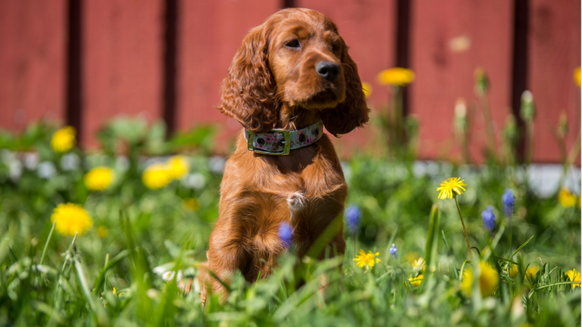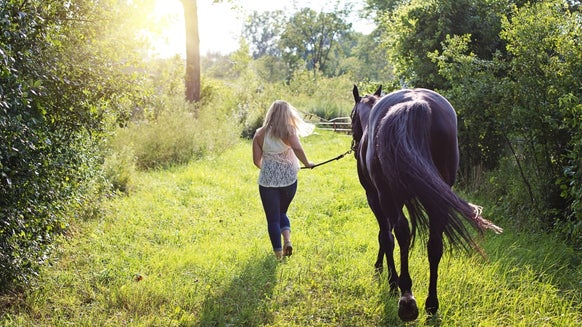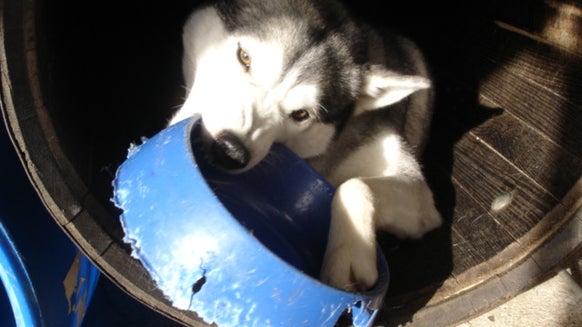Separation Anxiety in Dogs- Advice for Pet Owners

How to Overcome Separation Anxiety in Dogs
During lockdown, we have been spending a lot of time if not 24/7 with our pets at home, and they will be loving the company. When things eventually go back to normal, the dog owners amongst you may notice a behavioural change in your four-legged friend. Your dog will have adjusted and got used to having your presence in their surrounding environment, and once this is taken away when you go back to work and other commitments resume, they can respond in the form of separation anxiety. This blog is designed to help you prepare for and understand how to tackle this disorder.
What is Separation Anxiety?
Separation anxiety is basically a distressed state of mind which can lead to various side effects on a dog’s behaviour. It is a form of anxiety that a dog undergoes whenever it is left alone. It is important to not assume immediately that separation anxiety is at force as a dog showing undesirable behavioural issues isn’t always suffering from this disorder and there could be another problem to deal with.
Various Types of the Disorder:
Diagnosing separation anxiety only on the basis of a dog’s behaviour can be misleading at times because there are various other disorders that one can mistake for it. Here is a list of all the disorders that can help you to understand separation anxiety much better:
True Separation Anxiety: This phrase is used to identify separation anxiety and distinguish it from other disorders. A dog is said to be suffering from True Separation Anxiety when it starts to show behavioural issues only in the absence of a specific person, even around other family members or dogs. Just like we humans mourn over the loss of our loved ones, dogs too get attached to their pet parent or fellow canine companion and consequently experience separation anxiety. This is found mostly in shelter dogs and can be quite challenging to overcome, but it is not impossible.
False Separation Anxiety: This is a form of simulated separation anxiety where the dog tries to pretend as if it is suffering, so as to get the attention from its owner. Most of the time, false separation anxiety is an outcome of the mistakes made by the pet parent. When the owner nurtures a bad behaviour in a dog, they make the dog believe that it is going to be rewarded for those kinds of actions, and slowly this becomes a habit before the owner can realise it.
Isolation Anxiety: This happens whenever the dog is left alone. So, a dog suffering from isolation anxiety will be alright even when it is surrounded by a stranger or any other canine.
Claustrophobic phobia: Here, a dog feels as if it is trapped and contained in a place and constantly tries to escape by chewing up the doors or destroying things around it. These frantic attempts to escape are driven by wolf DNA that is dormant in a domestic dog but can get activated any time under the right circumstances.
You need to have proper knowledge of all these types of disorders in order to overcome separation anxiety in dogs. Separation anxiety can be short-term, ranging from a week to a month, or long‐term, lasting for more than a month. Remember that a correct diagnostic is the first step towards the treatment.

What are the causes?
Sudden change in the schedule: This can induce all these symptoms in a happy and healthy dog all of a sudden. When you go on a long holiday, exploring new places, you then come back to your normal routine. We tend to have a nostalgic feeling for a few days which goes away with time and as we get busy. For dogs however, the impact is much more pronounced and for a longer period of time because they don’t have all the tools and online platforms like YouTube for example to keep their mind busy.
Isolation or abandonment: A dog owner can induce isolation or abandonment for any reason like death, divorce, lack of funds to manage expenses, etc. As a knock on effect, a dog can experience separation anxiety.
Loss of a canine companion: Losing a loved one is always hard, and dogs can also suffer from this causing separation anxiety.
Medical conditions: A dog can also show signs of separation anxiety due to some underlying medical conditions, or any other mental or physical illness that can cause restlessness.
Shifting to a new residence: Dog’s get attached to their old homes and surroundings. Upon moving to a new house, a dog might feel scared due to various kinds of smells, or it might just be that your pooch is missing its favourite spot in the previous house.

What are the Symptoms to help Pet Owners Detect the Disorder?
If your dog shows these signs, especially when left alone, then there is a good chance that it might be suffering from separation anxiety. But don’t worry, it is just a state of mind and there are ways through which you can overcome the disorder.
- Constant barking, howling, whining
- Intense pacing and restlessness
- Excessive salivation and panting
- Restlessness, scratching doors or windows, digging at doors
- Escaping a room or crate
- Drooling
- Destruction of property (pillows, sofas, and other furniture, eating plants)
- Vomiting
- Urinating or defecating indoors
- Chewing stuff (especially things you touched recently)
- Dilated pupils
- Jumping through open and/or closed windows
- Eating through walls
- When you come home, the dog follows you around the house
- Sweating
- Hiding or crying when you take your keys or make other signs that you plan to leave the house
- Ignoring food
- Destroying doors and other points of entry
Ways to Overcome Separation Anxiety
Trust: This is perhaps one of the most important ingredients. No matter what kind of anxiety your dog is suffering from, trust is something that will help your dog come out of that state of the mind. Creating a strong bond makes for a happy and healthy dog with no signs of separation anxiety. When developing trust, it is important to remember that Rome was not built in a day. It is a time taking process, but the results are completely worth it. A few tips for you and your furry friend include:
- Taking your dog for a walk every day
- Talk to them and share your stories even if they don’t understand your language.
- Play fetch with them
- Play tug of war with a rope
Crate Training: Start working on crate training your dog as soon as you get him home. The whole objective is to associate a positive attitude towards the crate. You can do this by feeding your dog inside the crate or putting a comfy bed in there so that your furry friend gets proper sleep. This way the dog will develop positivity and you can take advantage of this to overcome separation anxiety.
Teaching your dog to be alone: If your dog follows you everywhere and you are not stopping that behaviour then you are making a big mistake. A loyal creature is cute, but it means we are nurturing separation anxiety. You should always practice certain rules, boundaries and limitations in order to be a successful pet parent. Start teaching your dog to be independent slowly so that it feels comfortable whenever it is left alone. You can do this by teaching him to follow commands like “stay” and then leave his site for a few minutes. Once your dog is comfortable, you can leave him alone inside the house for a short period of time so as to make him understand that you will come back home. You can also use a pet cam or a CCTV to monitor your dog when you are not there.
Exercise: Exercise is not only important to overcome separation anxiety, but also to ensure that your pet is happy and healthy. It helps your dog to release some energy which makes them calmer and more relaxed thereby reducing his destructive behaviours like chewing up the sofa, curtains, etc.
Buy interactive toys: These toys can keep your pooch busy and that way he won’t have the time to think about you. Toys like Kong, Snack ball, or any that dispense treats are great options for when you’re not around.
Play an audiobook: Studies have shown that playing an audiobook has a positive impact on dogs suffering from separation anxiety, as it makes your furry friend believe that it is not alone.
Pet cube Play: This is a device that helps you to stay connected with your pet no matter where you are, and it also comes with a laser toy. It is a two‐way communication channel where you can look at your dog, talk to your pet and calm them down.
Visit your vet: There are various underlying medical conditions that can lead to symptoms of separation anxiety, so seeking professional help would save you and your furry friend a lot of hassle. Besides this a vet can also prescribe few medicines that can help you in your endeavour to overcome to overcome the disorder.

Besides this there are some other useful tips that can help you to manage separation anxiety:
- Don’t be overexcited when you come back home
- Don’t let your dog understand the going away signals, be creative and do something different every time you plan to leave
- Hire a behaviourist
- Leave your dog at a dog hotel or hire a pet sitter
- Create positive association i.e. let the dog think that you leaving is equal to treat time
- Get some good quality chew toys and hide them in different places so that your dog can play treat hunt when you are not at home.
- Nurture dog instinct i.e. Labrador's love to swim and fetch.
Separation anxiety might look scary at the beginning, but it can be treated. Having patience and persistence can help you overcome any challenge in life. You should not lose hope and always keep yourself calm when dealing with separation anxiety.
Check out my blog to find various dog care advice and lots of simple ways to keep our dogs happy, healthy, and active.
Hello, my name is Harsh and I am a dog lover and a pet blogger at www.mypetdoggie.com. I have done a MBA in Marketing & Finance. I was working as a Tax analyst with EY but decided to quit the job so that I can be a full‐time blogger. Currently I am working as a freelance content writer whenever I can. Learning new things is what keeps me motivated. I like coffee, DIY, running and of course dogs.








